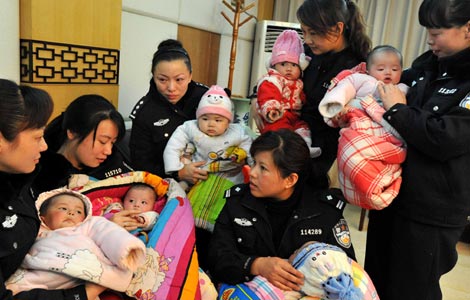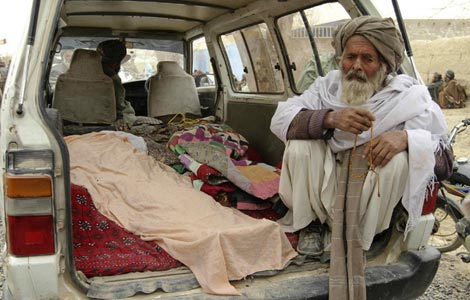 |
|
|
|
|||||||||||
BEIJING - China's top procurator Cao Jianming said Sunday that prosecutors nationwide investigated 2,524 corrupt officials at or above the county head level, with 198 at the prefectural level and seven at the ministerial level.
The prosecutors took a hard line on civil servants who abuse their power for personal gains or take bribes, investigating 7,366 people in administrative and law-enforcement departments and 2,395 in the judiciary system, said Cao, while delivering a work report at the annual session of the National People's Congress (NPC).
Reviewing the work of the Supreme People's Procuratorate (SPP) in 2011, Cao, procurator-general of the SPP, said greater emphasis was put to the combination of punitive and preventive measures, with procuratorates at all levels launching extensive publicity campaigns to prevent work-related crimes.
For 2012, Cao said measures such as preventive consultation, preventive investigation and warning education would be deepened to boost the building of punishment and prevention system for corruption.
According to Wang Yukai, a professor with the National Academy of Administration, the lack of prevention is often the reason for officials, especially the chief official of a department, to make the initial wrong step and then begin to take more bribes or embezzle more state assets until they are busted.
In a separate report to the parliamentary session Sunday, China's chief justice Wang Shengjun said courts nationwide convicted 29,000 people for embezzlement, bribery and malfeasance last year.
Cao said efforts were intensified last year to crack down on crimes of offering bribes, prosecuting 4,217 bribers, a year-on-year increase of 6.2 percent.
"Combining prevention and punishment will be more effective in combating corruption. But it will also require greater efforts to improve the anti-corruption system and further engage the public and the media in overseeing power," said Wang, the professor.
Wu Ying, iPad, Jeremy Lin, Valentine's Day, Real Name, Whitney Houston, Syria,Iranian issue, Sanyan tourism, Giving birth in Hong Kong, Cadmium spill, housing policy

|

|

|

|

|

|